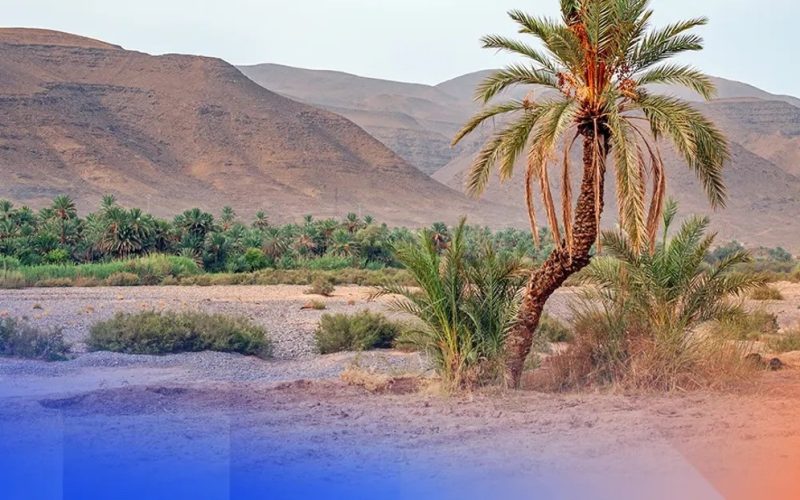by Lawrence Hatheway, Kim Catechis, Mohieddine Kronfol & Salah Shamma, Franklin Templeton
As the conflict between Israel and Iran continues to unfold, financial markets have remained relatively calm, reflected in subdued equity, fixed income, currency and commodity price moves. To address the outlook for markets, I hosted a discussion with senior investment professionals and strategists from Franklin Templeton with experience in the region. The participants were Mohieddine Kronfol, Chief Investment Officer, Global Sukuk and MENA Fixed Income, Franklin Templeton Fixed Income; Salah Shamma, Head of Investment ‒ MENA Equities, Franklin Templeton Emerging Markets Equity; and Kim Catechis, Investment Strategist, Franklin Templeton Institute.
The participants noted that the conflict has the potential to significantly alter the geopolitical landscape in the Middle East. At some point, the parties will try to achieve a peaceful resolution to the conflict, one that may also address longstanding issues and which could therefore become a positive catalyst for regional growth and development. Within the region there are massive needs to rebuild infrastructure, for which it will be necessary to mobilize the private sector and attract foreign investment.
For investors in the near term, however, the conflict highlights the importance of using tools to analyze geopolitical risk and uncertainty, and to incorporate those factors into portfolio construction.
Here are some highlights of the discussion.
Key takeaways
- Thus far, the conflict has had only a modest impact on oil prices. US assets have not responded as traditional safe havens, which is unsurprising given a myriad of uncertainties surrounding new US tariff policy, fiscal policy and other considerations.
- The conflict has the potential to reshape the geopolitical landscape of the Middle East, but it remains too early to anticipate how long the military actions will continue, or whether the United States may become involved.
- Eventually, a sensible peace plan that addresses the causes of longstanding conflict could become a positive tailwind for the region’s economic and financial development.
- The Middle East has massive needs for rebuilding its infrastructure, for which it will be necessary to mobilize the private sector and draw foreign investment.
- For investors, the conflict highlights the importance of using tools to analyze geopolitical risk, as today’s economic logic fuses geopolitical and geoeconomic interests, including a shift toward regionalization and away from globalization.
- In our view, portfolio consideration for diversification via uncorrelated markets and assets is of great importance to help manage risk. Diversification may reinforce flows of capital away from the United States and into other regions.
- In the near term, we believe portfolios ought to focus on quality and a more defensive posture.
- The Gulf Cooperation Council countries—Bahrain, Kuwait, Oman, Qatar, Saudi Arabia and the United Arab Emirates—may attract assets, as they stand out globally in terms of offering low levels of debt, strong sovereign debt metrics and currencies that are either pegged to or denominated in US dollars.
- While questions surround the US dollar, gold and cryptocurrency, the US dollar is likely to remain the dominant reserve currency for the foreseeable future.
- European nations are in the process of launching rearmament programs to develop defense industry capabilities independent of the United States and will likely need to issue more sovereign debt to fund these efforts.
- Over time, investment in new military and security technologies may find civilian applications and be beneficial to growth in the consumer economy.
Authors
Lawrence Hatheway, Global Investment Strategist, Franklin Templeton Institute
Kim Catechis, Investment Strategist, Franklin Templeton Institute
Mohieddine Kronfol, Chief Investment Officer, Portfolio Manager, Global Sukuk and MENA Fixed Income, Franklin Templeton Fixed Income
Salah Shamma, Head of Investment, MENA Equities, Franklin Templeton Emerging Markets Equity
WHAT ARE THE RISKS?
All investments involve risks, including possible loss of principal.
Commodity-related investments are subject to additional risks such as commodity index volatility, investor speculation, interest rates, weather, tax and regulatory developments.
Strategies that invest in companies in a specific country or region may experience greater volatility than a strategy that is more broadly diversified geographically.
Equity securities are subject to price fluctuation and possible loss of principal.
Fixed income securities involve interest rate, credit, inflation and reinvestment risks, and possible loss of principal. As interest rates rise, the value of fixed income securities falls. Changes in the credit rating of a bond, or in the credit rating or financial strength of a bond’s issuer, insurer or guarantor, may affect the bond’s value. Low-rated, high-yield bonds are subject to greater price volatility, illiquidity and possibility of default.
International investments are subject to special risks, including currency fluctuations and social, economic and political uncertainties, which could increase volatility. These risks are magnified in emerging markets. Investments in companies in a specific country or region may experience greater volatility than those that are more broadly diversified geographically. The government’s participation in the economy is still high and, therefore, investments in China will be subject to larger regulatory risk levels compared to many other countries.
Diversification does not guarantee a profit or protect against a loss.














